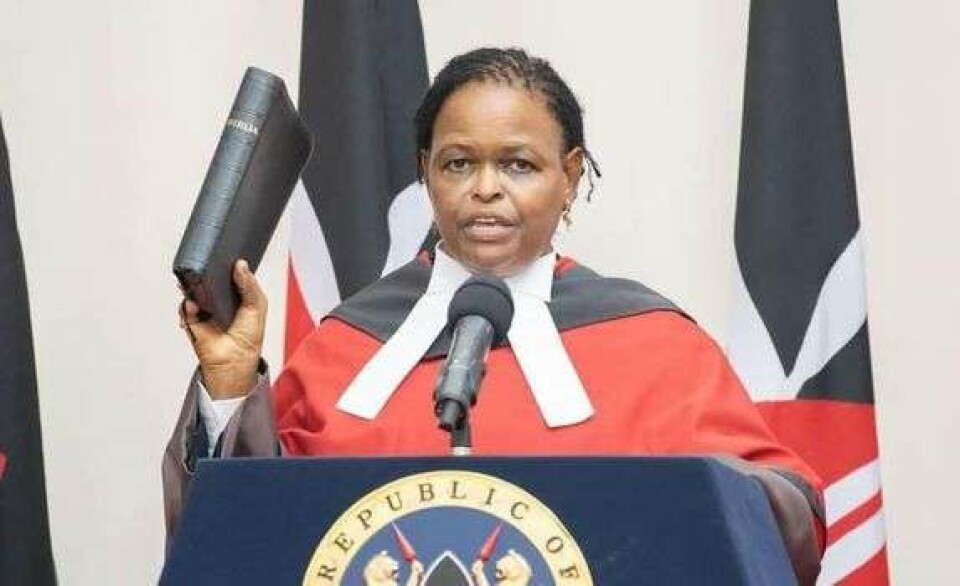According to the 2018 Global Slavery Index, over 9.2 million people living in Africa are living in modern slavery, accounting for 23% of all human trafficking around the globe. In 2020, the Kenyan government reportedly identified 853 victims of trafficking – 275 adult females, 351 girls and 227 boys who were subjected to forced labour in 2019.
This contradicts the Forced Labour Convention of 1930 which prohibits all forms of forced or compulsory labour.
Not only is it illegal to subject people to forced labour, but it is also criminal under the provisions of the Counter-Trafficking in Persons Act of 2010. The Kenyan law prescribes at least 30 years imprisonment, a fine of not less than 30 million Kenyan shillings ($274 980), or both, for labour traffickers.
However, the law appears ineffective and has only led to a few convictions, Chief Justice of Kenya, Martha Koome, said at the launch of the Kenya Judicial Bench Book on Labour Trafficking in Persons.
The reference book, developed by the Kenya Chapter of the International Association of Women Judges in partnership with International Association of Women Judges (IAWJ), is aimed at improving the administration of justice in prosecution of labour trafficking cases.
“Labour trafficking is a major problem in Kenya, because traffickers take advantage of the weak regulatory and enforcement regimes to exploit vulnerable migrants, the majority of whom are women, girls and children.
“Unfortunately, there have been few or no convictions of TIP [trafficking in persons] cases as most of the cases fall out of court due to corruption, lack of evidence, lack of witnesses, intimidation of witnesses or victims by the perpetrator, lack of identification of victims or perpetrators and inadequate collaboration amongst the justice actors," Koome stated.
She added that this bench book will fill the void created by the non-existence of literature on labour trafficking in Kenya.
"The bench book will therefore serve as a quick reference guide for judicial officers and judges by providing information on labour trafficking. It will also go a long way towards enhancing a multi-agency collaboration among the justice actors in the area of trafficking," Koome continued.
She also noted that the IAWJ has been spearheading advocacy in the advancement and promotion of the rights of women and children and increasing the opportunities available to them.
The new book is in line with recommendations issued by the Office to Monitor and Combat Trafficking in Persons. In the 2021 Trafficking in Persons Report, the US agency urged the Kenyan government to “expand training to all levels of the government, specifically to law enforcement personnel and local authorities in rural and coastal regions, on identifying, investigating, and managing trafficking cases".
To join Africa Legal's mailing list please click here

